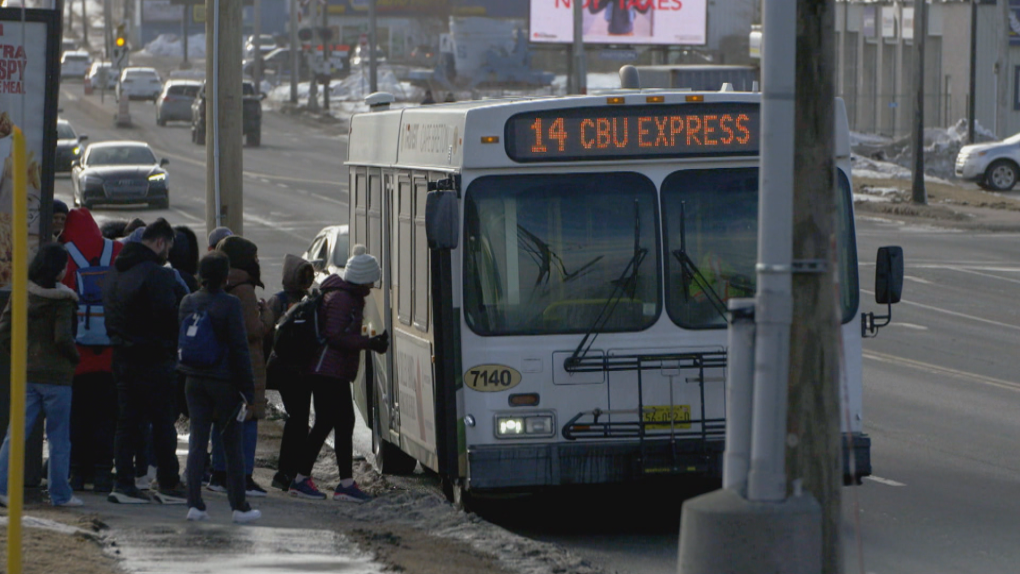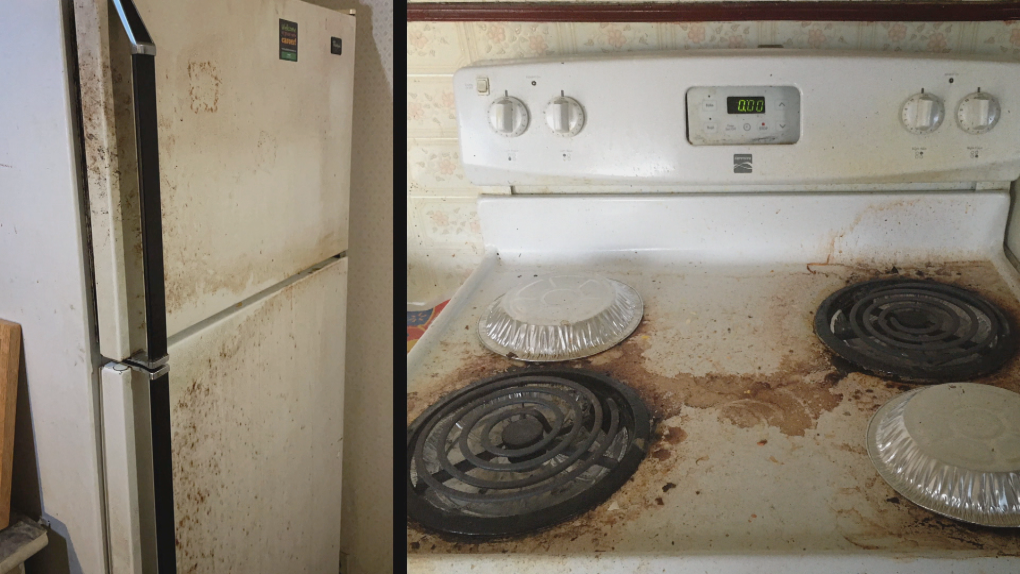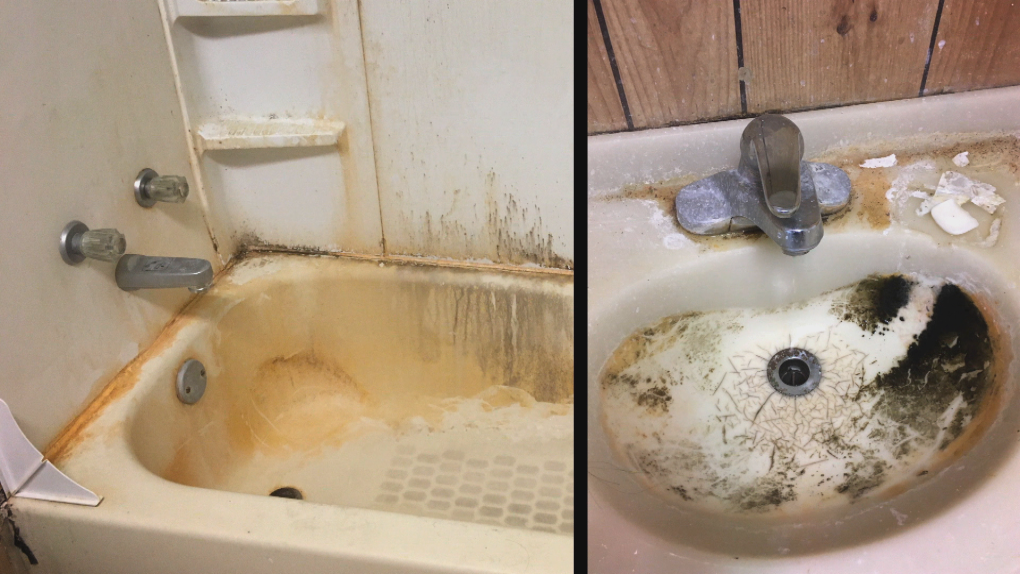Priest, neighbours issue plea for help for struggling international students in Cape Breton
It’s not everyday you see a plea from a Catholic priest in the local paper asking people to take in homeless university students.
"Recently, I learned that some of these students are sleeping in cars while they look for a place to live. That is simply not acceptable," writes Reverend Dr. Albert Maroun.
"As Cape Bretoners, we know that something must be done to ensure it stops."
Father Maroun knows the needs of international students at Cape Breton University well, because he meets them during lunch. Hundreds depend on the local community kitchen, Loaves and Fishes, for food.
It’s a community-run kitchen, primarily funded by churches around Cape Breton. The facility was overwhelmed when the university recruited thousands of newcomers in just a few years. They offer up to 250 free meals a day, the majority of them go to foreign students.
Cape Breton University has aggressively ramped up enrollment in the past five years for international students, most of whom are from India.
That’s because students from abroad often pay double what most Canadians do, which has been a saving grace for university budgets across the country.
Today, CBU has 7,300 students on campus, more than 70 per cent of them are international. That’s the highest percentage of international students from the 30 public universities W5 surveyed across the country (see chart below).
 CBU students board a bus in Sydney, Nova Scotia (W5)
CBU students board a bus in Sydney, Nova Scotia (W5)
In his letter to the editor, Maroun alleges that the university wants to make money but doesn’t take responsibility for these students.
"When the steel plant was setting up here over a century ago, they built housing first… maybe CBU should look to the past to see how it is done right."
NEWCOMERS STRUGGLING
W5 spoke with dozens of international students, both on the phone and on the ground in Cape Breton.
Many are frustrated by the lack of affordable housing, buses that don’t have enough room for students to get to school, and the challenges of finding part time jobs. But most students were too scared to speak on camera out of fear they would be penalized by the school.
"I wanted to grab the landing gear and fly back," one student tells us, when we agreed to hide her identity. "My mind just shut down for about a week after I landed here. It’s so desolate and there's nothing here."
This student had studied abroad before, where a transition team at her first university had helped her find accommodations. CBU currently has apartment listings in the community on its website and a dedicated off campus housing coordinator, but this student claims, she was not told anything like that existed and it was difficult to find a place when she arrived.
"I often wake up at midnight, 3 a.m, 4 a.m… I just know my hair is turning grey," she says about the pressure to succeed in Canada.
Before the influx of students, Cape Breton was already facing a severe affordable housing shortage. While there are dorms available on campus, there are no kitchens, so students can’t cook and must purchase a meal plan costing roughly $3,000 a semester.
Damanpreet Singh is CBU’s Student Union President and also an international student who came to Canada in 2021.
"They should have built kitchens so students could cook, but they didn’t," he said. "They don’t want students cooking in their rooms."
He says most students can’t afford to live on campus because many have already taken out personal loans and it’s much cheaper to live in the community. But he also thinks students need to do more research about housing and jobs before coming to Cape Breton.
Another student, who asked to remain anonymous, says he has poured his life savings into this degree, but has struggled to find a place to live. His first rental had rusted out sinks and bathtubs, and mice running around.
"It’s the most disgusting place I’ve ever been," he says. He temporarily moved in with a friend. He says he has lost 20 pounds from all the stress and hasn’t video-called his family since arriving in Canada in early 2023. "I'm really afraid to Facetime my family because I don’t want them to figure out how terrible I'm looking," he said.

 International students share pictures of some of the housing conditions in Sydney, N.S. (W5)
International students share pictures of some of the housing conditions in Sydney, N.S. (W5)
He also shows us the snow-filled, isolated road he was waiting on to take a bus to school.
"I was waiting for the bus for one hour," he tells us. "All my shoes, my socks, my pants were all damp."
Others tell us, at the beginning of the semester, there weren’t enough seats when the bus arrived. Many said they missed classes because of those delays. In response, CBU has purchased two city buses and added shuttles to help students get to class. But those buses continue to be crowded.
The university largely touts its growth as a success, though it acknowledges there are some growing pains. David Dingwall, the president of CBU, says the university plans to add 240 more beds on campus and is working with the private sector to generate more options in the community.
"But let's not kid ourselves, housing in every community across the country has grave difficulties and we're no exception," Dingwall says.
In 2019, CBU purchased land to develop affordable housing in the community, but no ground has been broken yet. It’s also expanding the dorms to accommodate families coming from abroad and capped certain programs for enrollment.
Here's a list of improvements made by CBU:
- CBU Continues to Take Action on Housing
- Open Letter to the Cape Breton Community
- Forever CBU Campaign
- CBU Newsroom: Cape Breton University Will Do More
'CANADIAN MAMA' HELPING STUDENTS
Community members are coming to the aid of students. Brenda Matheson from Sydney is one of them. Last year, she started noticing international students, mostly from India, everywhere.
"My community has become the nicest shade of brown," she laughs.
The 61-year-old grandmother is as Cape Breton as they come. You can hear her beautiful laugh and accent a mile away.
That warmth is what drew an international student to her doorstep, begging for a place to live. She says she couldn’t turn him away in the cold. A year later, he still lives with her, rent-free, with another student planning to move in April. From these newcomers, she started to see what was really going on in her community.
"Kids are sleeping in cars. Kids are sleeping on floors, in people's living rooms, kids are sleeping in laundromats," she claims. She says she’s ashamed that so many students pay tens of thousands of dollars to come to Canada to live like this.
Her home has since become a hub for struggling students. Many of her neighbours are also now housing foreign students because of the influx.
"I think that if you are going to invite thousands of people to any community anywhere on the planet, that maybe you would have lodgings for them, maybe there would be accommodations available, maybe there would be a job for them," Brenda says.
"These kids aren't kids. They're a commodity. They're a cash figure. They're a bottom line."
Can't see the chart of international students by university below? Click here
Watch the documentary 'Cash Cows' in the video player at the top of this article, or on our official YouTube channel.
CTVNews.ca Top Stories

BREAKING Ontario Premier Doug Ford threatens to cut off energy to U.S. in response to Trump's tariffs
Ontario Premier Doug Ford threatened to cut off energy supply to the U.S. in response to the tariffs President-elect Donald Trump plans to impose on all Canadian imports.
Elon Musk calls Justin Trudeau 'insufferable tool' in new social media post
Billionaire Elon Musk is calling Prime Minister Justin Trudeau 'an insufferable tool' in a new social media post on Wednesday. 'Won't be in power for much longer,' Musk also wrote about the prime minister on 'X.'
Trudeau will have to 'kiss the ring' to achieve smoother bilateral relations with Trump: John Bolton
If Prime Minister Justin Trudeau wants to get on U.S. president-elect Donald Trump's good side for the sake of a smooth bilateral relationship, he'll likely have to be openly deferential, says former U.S. National Security Advisor, John Bolton.
Banks lower prime rates following Bank of Canada move
Canadian financial institutions are lowering their prime lending rates to match the decrease announced by the Bank of Canada.
Police locate labyrinth of tunnels connecting tents to generator in Hamilton encampment
Hamilton police say that they discovered a series of “man-made holes and tunnels” during a patrol of a downtown encampment earlier this week.
Police identify murder victim whose skull was found in Ontario river more than three decades ago
Police have identified a man whose skull was found almost 40 years ago in a Peterborough-area river.
Certain foods may disrupt your body's fight against cancer cells, study says
The food you eat may be affecting your body’s ability to fight cancer cells in the colon, according to a new study.
Canada Post strike: Talks deadlocked as sides clash on wages
Negotiations between Canada Post and the union representing its workers appear to be in a deadlock as the two sides remain far apart on wages and other issues.
Poilievre's Conservatives still in majority territory: Nanos seat projections
The Liberals' promise of a temporary GST break and $250 rebate cheques haven't benefited Prime Minister Justin Trudeau and his minority government when it comes to public support, according to Nanos Research data.
Local Spotlight

North Pole post: N.S. firefighters collect letters to Santa, return them by hand during postal strike
Fire departments across Nova Scotia are doing their part to ensure children’s letters to Santa make their way to the North Pole while Canada Post workers are on strike.
'Creatively incredible': Regina raised talent featured in 'Wicked' film
A professional dancer from Saskatchewan was featured in the movie adaptation of Wicked, which has seen significant success at the box office.
Montreal man retiring early after winning half of the $80 million Lotto-Max jackpot
Factor worker Jean Lamontagne, 63, will retire earlier than planned after he won $40 million on Dec. 3 in the Lotto-Max draw.
Man, 99, still at work 7 decades after opening eastern Ontario Christmas tree farm
This weekend is one of the busiest of the year for Christmas tree farms all over the region as the holidays approach and people start looking for a fresh smell of pine in their homes.
Saskatoon honours Bella Brave with birthday celebration
It has been five months since Bella Thompson, widely known as Bella Brave to her millions of TikTok followers, passed away after a long battle with Hirschsprung’s disease and an auto-immune disorder.
Major Manitoba fossil milestones highlight the potential for future discoveries in the province
A trio of fossil finds through the years helped put Manitoba on the mosasaur map, and the milestone of those finds have all been marked in 2024.
The 61st annual Christmas Daddies Telethon raises more than $559,000 for children in need
The 61st annual Christmas Daddies Telethon continued its proud Maritime tradition, raising more than $559,000 for children in need on Saturday.
Calgary company steps up to help grieving family with free furnace after fatal carbon monoxide poisoning
A Calgary furnace company stepped up big time Friday to help a Calgary family grieving the loss of a loved one.
'A well-loved piece': Historic carousel display from Hudson’s Bay Company store lands at Winnipeg shop
When a carousel setup from the Hudson’s Bay Company became available during an auction, a Winnipeg business owner had to have it.

















































